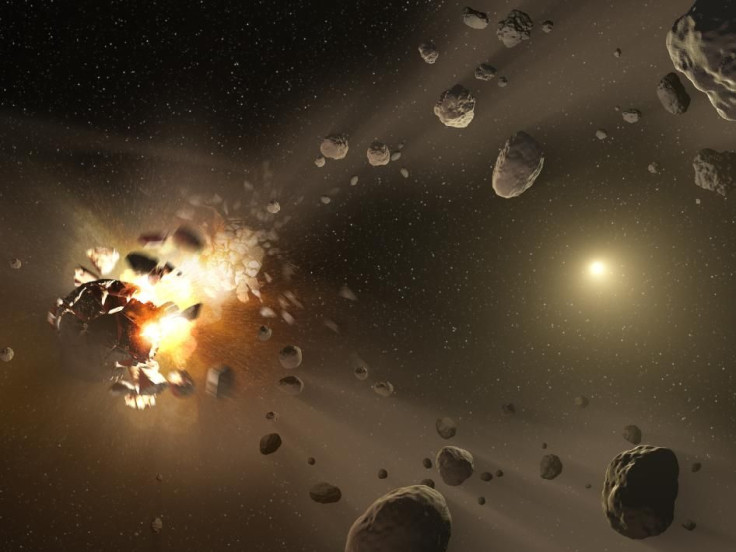Exploding 492,126-Foot Asteroid Created New Species On Earth Millions Of Years Ago

A new study revealed that an asteroid may have largely contributed to the evolution of life on Earth over 460 million years ago. It certainly contradicts the life-ending event caused by a different asteroid 66 million years ago.
Asteroids are mainly regarded as a major cosmic threat to Earth primarily due to what happened to the planet during the time of the dinosaurs. According to reports, an asteroid several miles long crashed into Earth 66 million years ago and triggered a series of catastrophic events that led to the extinction of over 70% of life on the planet.
A recent study, however, proposed that a different asteroid could be responsible for kicking off life on the planet. According to the researchers, a massive collision in the asteroid belt broke up a giant space rock that was over 490,000 feet long. This caused thousands of meteorites to flood the solar system. Many of these meteorites crashed to Earth about 466 million years ago.
Back then, Earth was primarily covered by oceans where many spineless organisms thrived in. As the meteorites crashed into the ocean, the space rocks released various minerals into the water such as chromite and iron.
According to the researchers, these minerals provided the simple organisms the necessary nutrients to thrive and evolve into more complex lifeforms.
Aside from this direct effect, researchers also believe that the meteorites affected the planet in another major way. As the meteorites from the once massive asteroid entered Earth’s atmosphere, many of them broke up before reaching the surface. This caused a large volume of cosmic dust to linger in the atmosphere.
The researchers believe that the dust in the atmosphere prevented sunlight from entering Earth, triggering a minor nuclear winter. This caused the planet to cool slightly, allowing new organisms to thrive and flourish.
“Most important events in the history of like are like that,” paleontologist Rebecca Freeman of the University of Kentucky told Space.com. “You get a really unique set of circumstances that all come together, and you get a really dramatic event that maybe seems like it should be due to one particular dramatic thing. But in reality, it’s a more complicated system at play. “
The findings of the researchers were presented in a new study published in Science Advances.
© Copyright IBTimes 2024. All rights reserved.





















